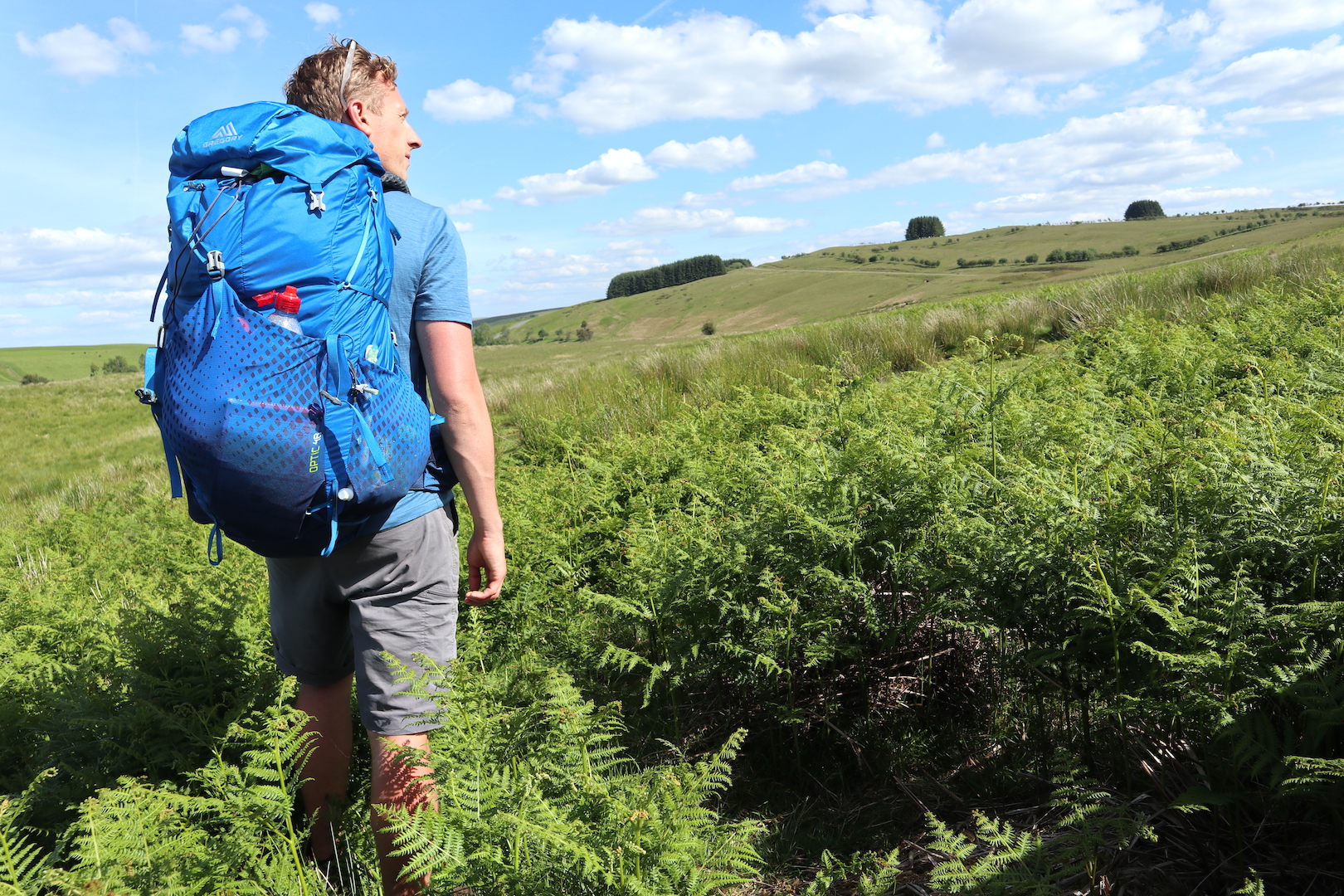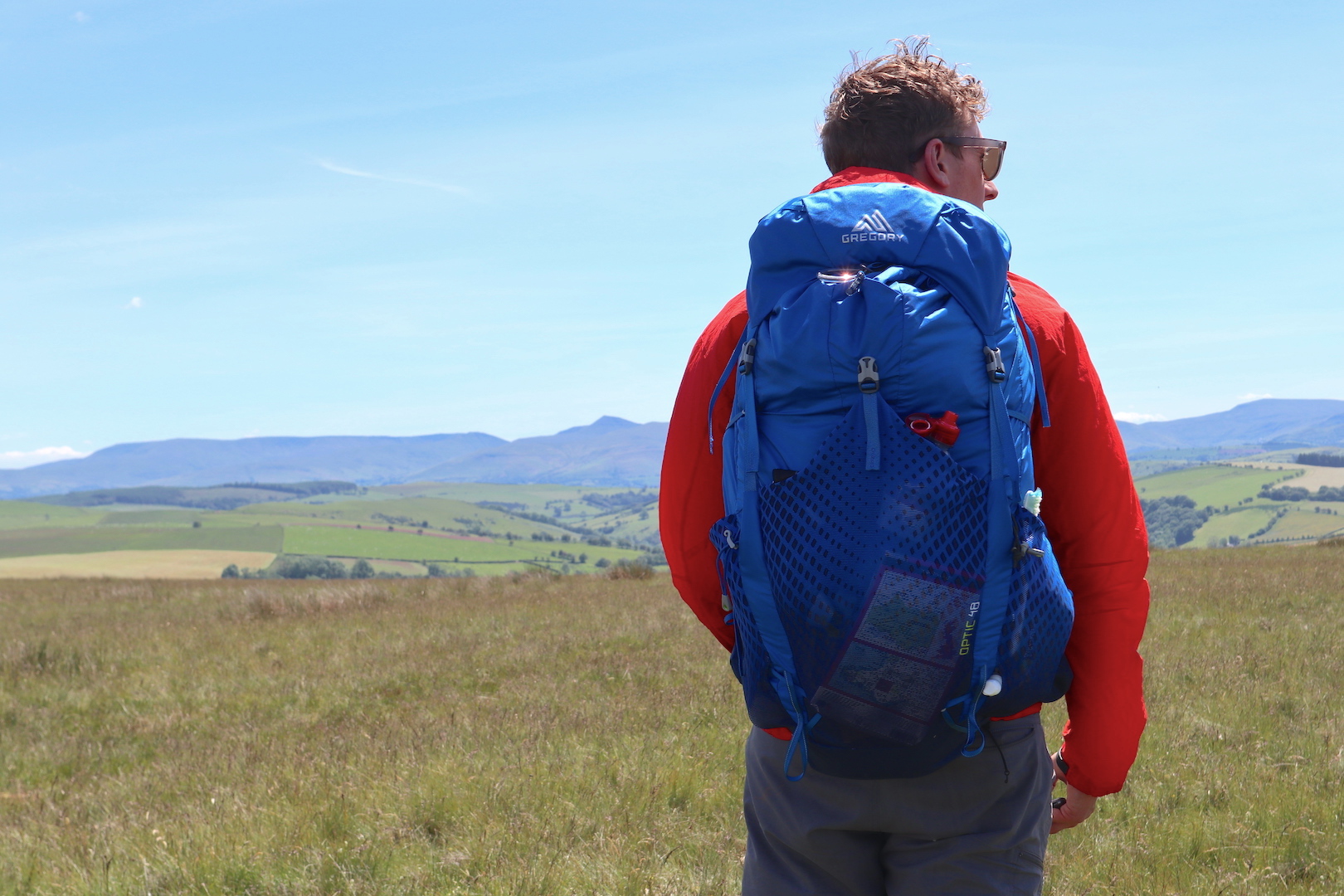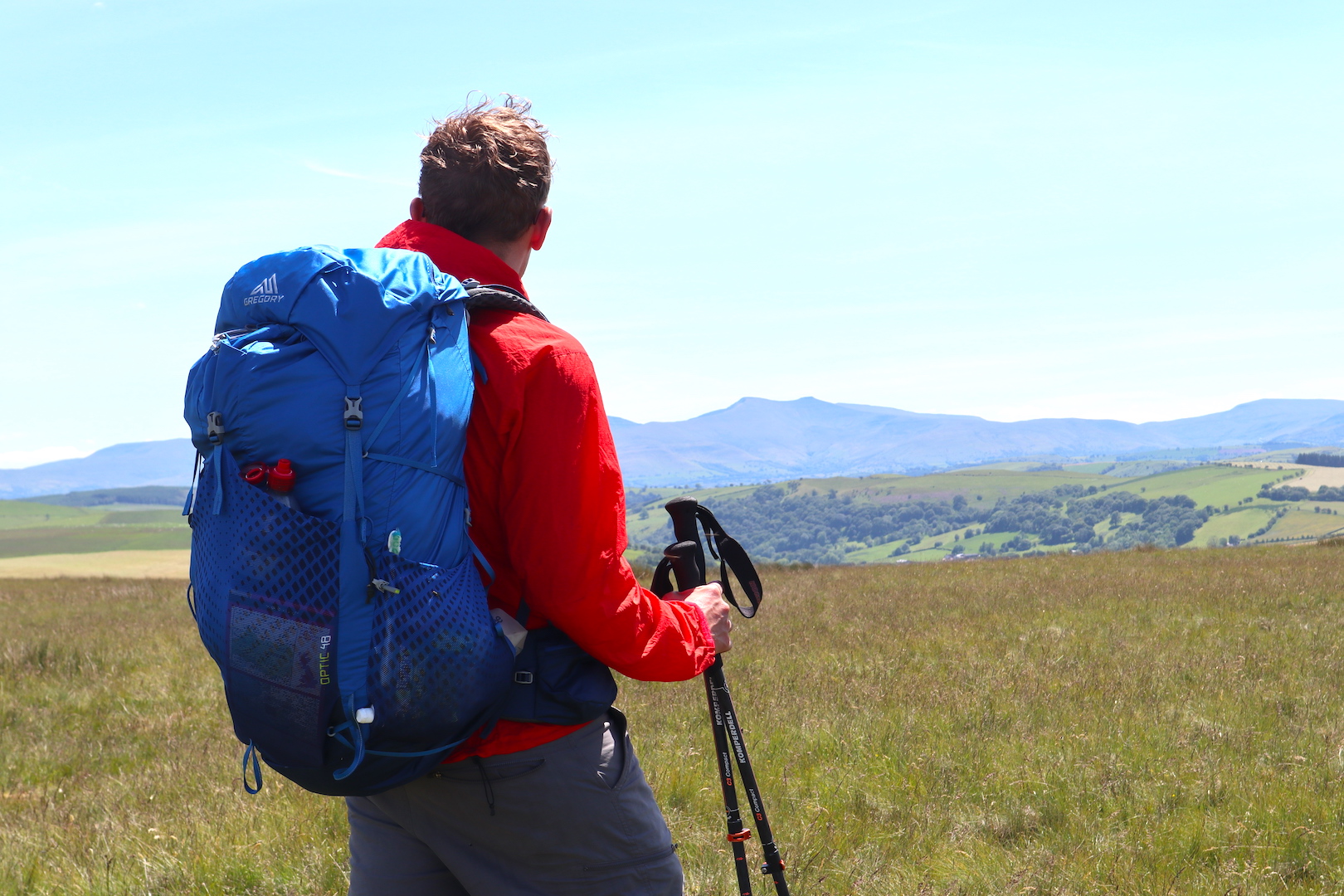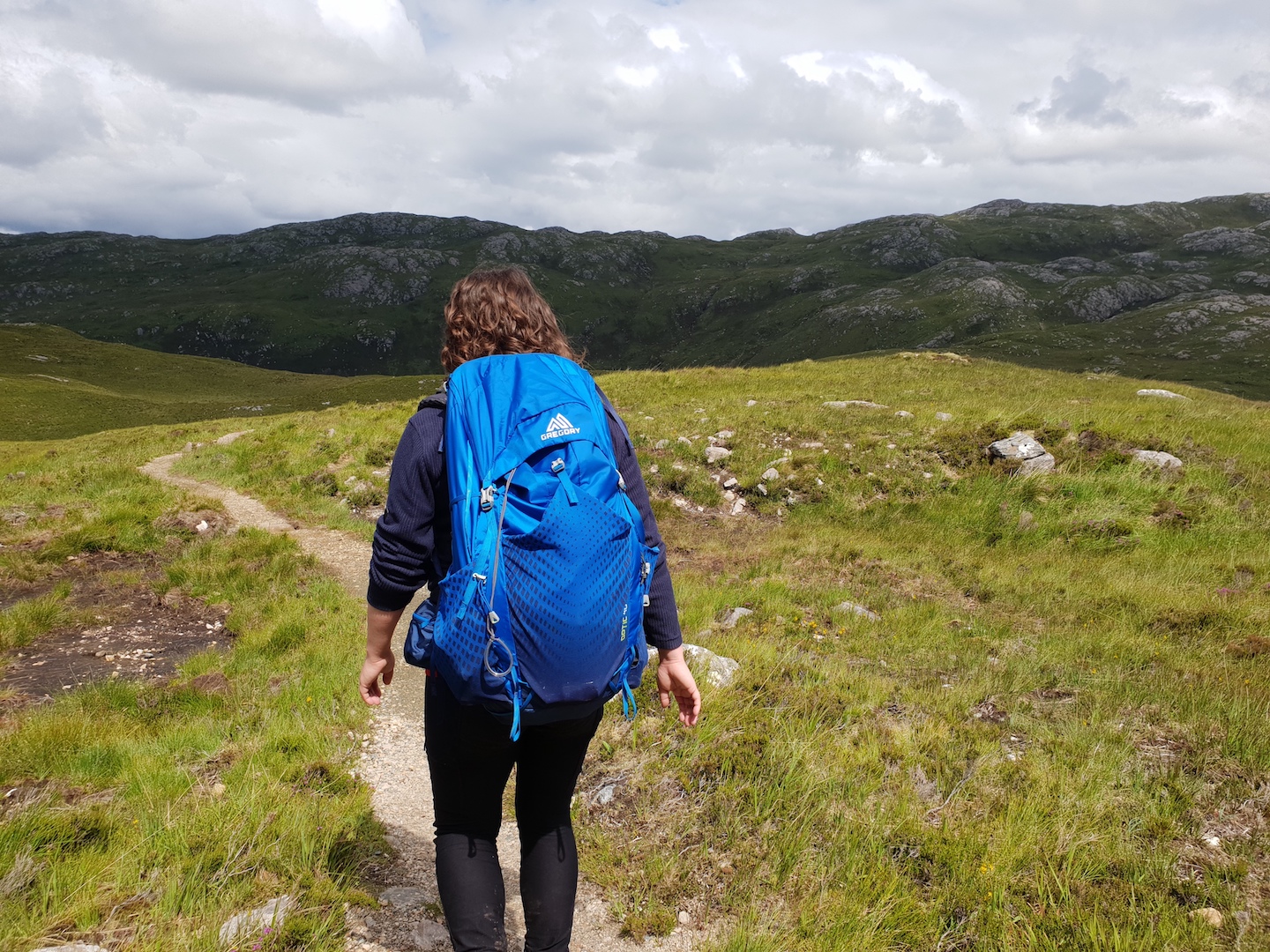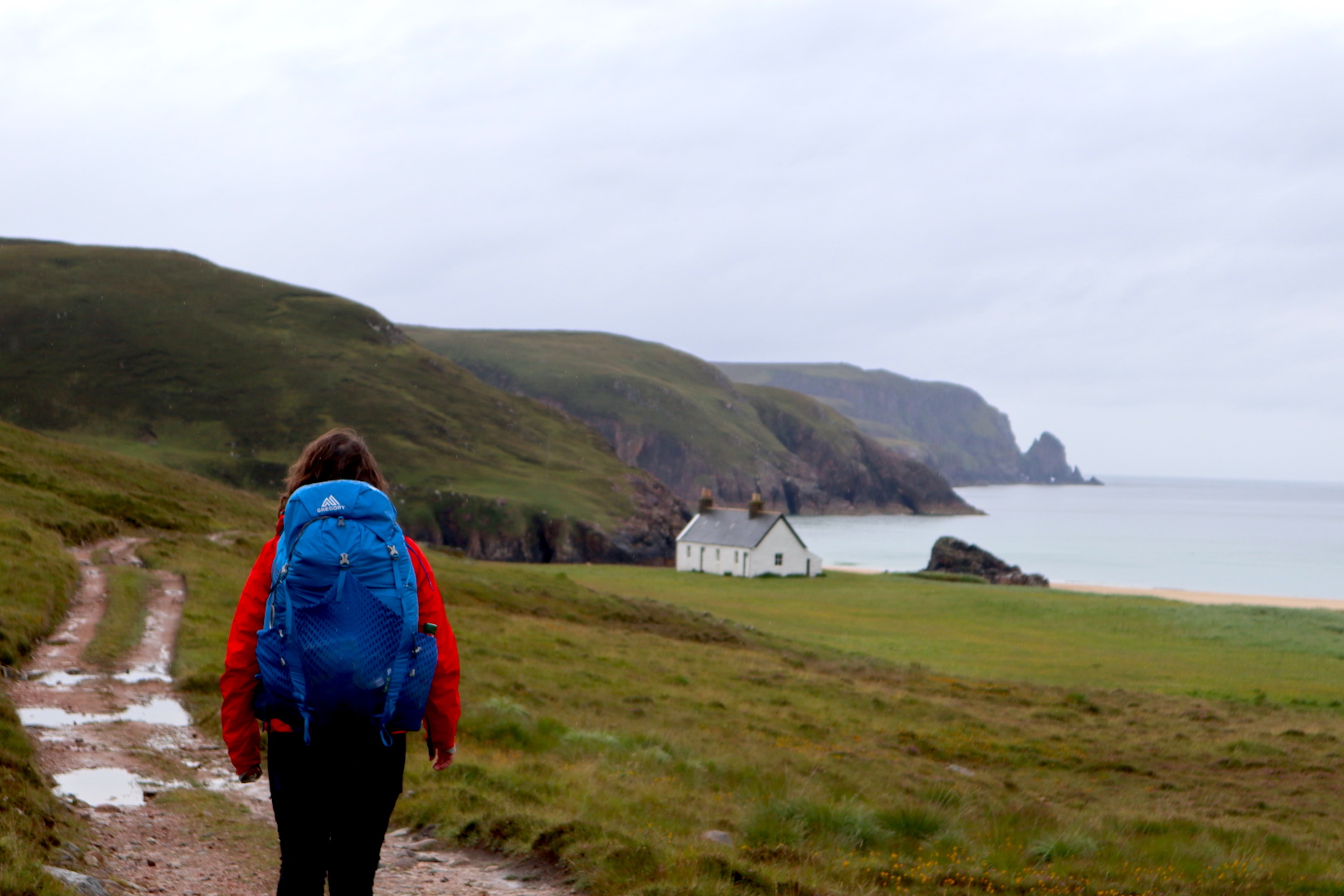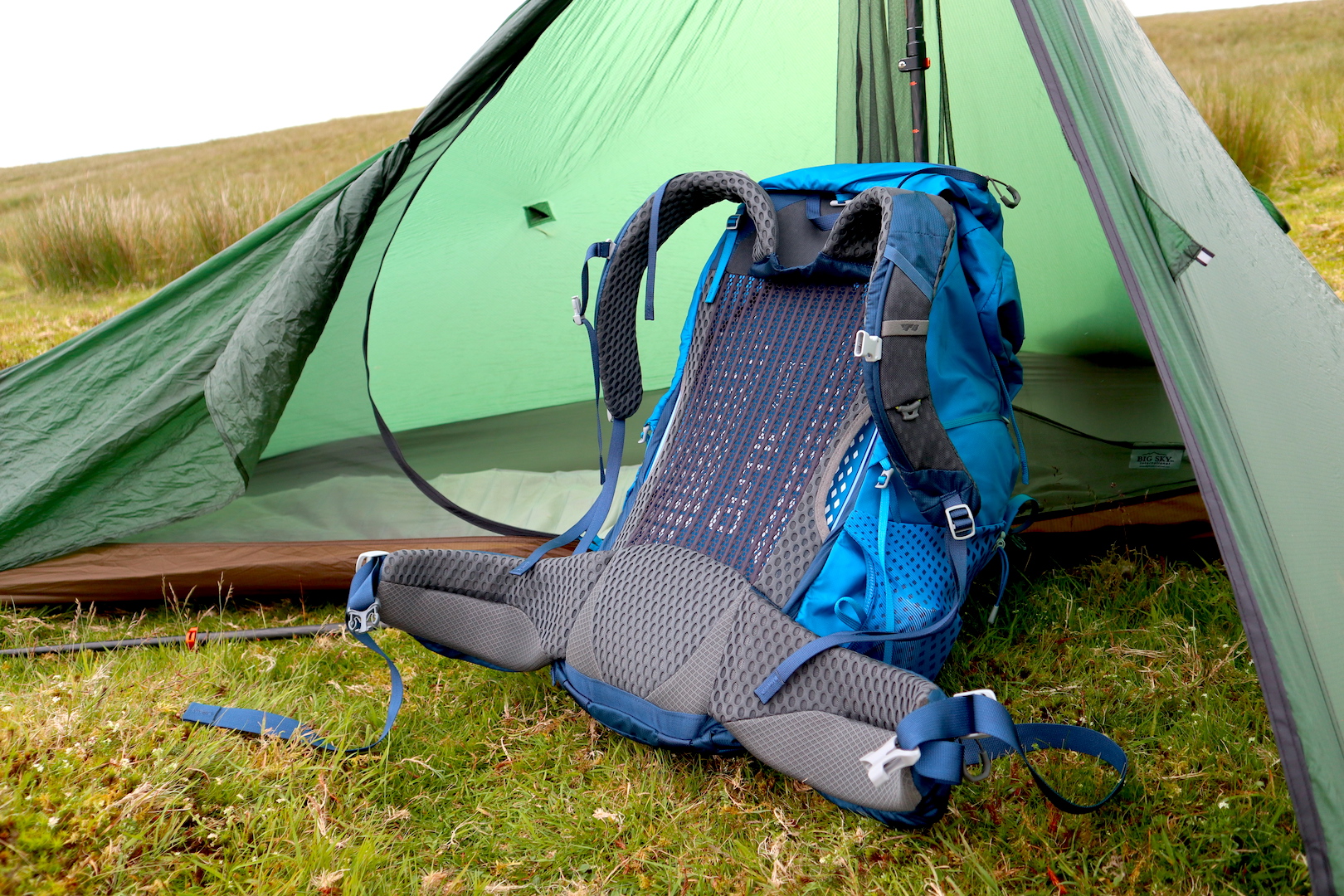Lightweight backpacks are the thing now. It’s taken a while, but we’ve all finally come to realise that if you want to get your pack weight down it’s best to start with the pack itself.
For a number of years, small cottage-type makers like Z Packs, Mountain Laurel Designs, and Hyperlite Mountain Gear were the only ones meeting the demands of lightweight hikers. Now the big brands have belatedly cottoned on. Osprey released the Levity; Lowe Alpine came with the Ascent, Vango have something on the way; and now we have this from Gregory, the Optic 48 (Octal 45 for women)
I’ve tried this out a fair bit recently. First I took it on a 50-mile hike along the Epynt Way in Mid Wales where I got to really test out its ventilation performance. Then I was in Scotland, using it for a hike to Kearvaig bothy and on a day trip up the incredible mountain that is Suilven.
Gregory Optic 48: Weight
The Optic weighs 1,221g. That’s light if you look at other similar backpacks within the category. For instance, Fjällräven’s Keb 52 weighs 2,260g, Lowe Alpine’s new Altus weighs 1700g while the Osprey Kestrel, one of their bestsellers, is 1760g. The Optic also has a trick up its sleeve, because by stripping off and removing bits and bobs, you can lower the weight down to an impressive 1080g.
Related: Best Hiking Backpacks
That said, there are lighter packs out there; the Osprey Levity (Lumina for women) for instance, which weighs just 830g. You can go even lighter than that but that’s when you’re entering into frameless, minimal-to-no back system territory.
Carrying Comfort
The Optic features a brilliant back system called Aerospan. This involves a trampoline mesh that is spread right across the back, a padded lumbar support, EVA foam hipbelt fins, 3D mesh shoulder straps and then a lightweight tubular frame and solid panel. The back system is fixed so you need to make sure you pick the right sized pack (S, M or L). I’m 5 foot 10 and chose the medium length.

